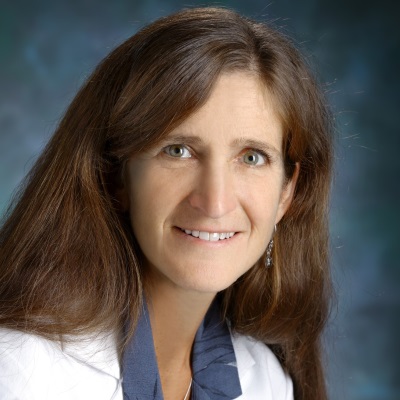
Argye Hillis
Johns Hopkins University
Dr. Argye Beth Hillis is a Professor of Neurology, with joint faculty appointments in Physical Medicine and Rehabilitation and in Cognitive Science at Johns Hopkins University. Dr. Hillis serves as the Executive Vice Chair of the Department of Neurology, and Director of the Cerebrovascular Division of Neurology. Prior to medical training and neurology residency, Dr. Hillis worked as a speech-language pathologist, and conducted clinical research focusing on understanding and treating aphasia and hemispatial neglect. She has brought these areas of experience to impact on her clinical research in neurology, which involves cognitive and neuroimaging studies of aphasia over the first year after stroke to identify mechanisms of recovery and cognitive deficits due to right hemisphere stroke and focal dementias. She also leads randomized clinical trials to improve language after stroke.